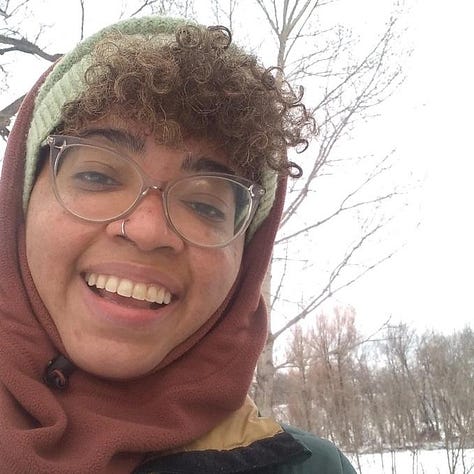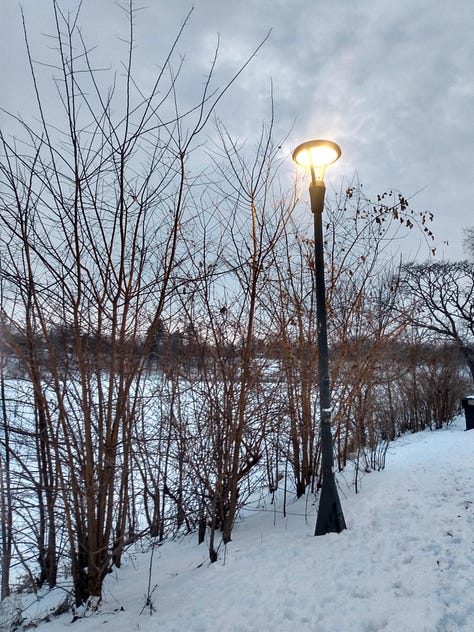Depression is an all-consuming vacuous hole. To me, it feels like a force the pulls me into sorrow and self-involvement, in a way I wish it did not.
In my journal and drafts these past few weeks, I have written abundantly on shame. I am reluctant to release any of it because of how raw a lot of this writing is, but at the same time, I want to acknowledge that it is there and overwhelming loud in this season of my life. Growing pains has been a defining aspect of 2024 for me, and the growth has confronted me with so many of the ways I have been undernourished in my life (either through traumatic events or my own poor choices and repetitions). Growing pains has also illuminated how I’m not used to certain kindnesses. This illumination ushers in its own grief. I can’t help but feel a little bit of shame and embarrassment when I react so strongly to receiving something that has felt rare in other seasons of my life, such as the benefit of the doubt or the opportunity to take turns being adults with someone (rather than having to be the stoic, strong friend).
I’m grateful to be revisiting my friend KD’s corner of substack, where he recounts where some of his thoughts and writing are, as well as what he’s taking in during his era of relative solitude. The invitation to share what I’m “writing, watching, reading, feeling” as well as what we love, reminds me of the anchor that “small kindnesses” have provided for me during a time where my mind turns towards my life-long struggle with shame and depression.
Gratitude cannot be forced. Part of what makes a gratitude practice genuinely helpful and honest to me is that it acknowledges that a lot is not great. A dishonest gratitude practice brings more shame. There are no “at least” heres (I gave myself permission to archive the text of a work colleague who texted me an “at least” in response to a bought of sickness I had recently. I don’t need any “at leasts” in my life!). Gratitude is not an “at least”. Gratitude is not a bypassing your feelings with a reframe. Gratitude is not a negation of what hurts. Gratitude is an “and”. Gratitude is looking around and noticing and finding something that brings joy, rest, peace, connection or ease in the midst of pain. Gratitude is about paying attention.
As my heart is turning towards trauma memories and shame stories almost hourly these days, I practice with “and…”:
A friend invited me and some others to her place for Christmas, singing together and sending me home with yule log cookies.
A long distance friend still dreams about travel and recipes and birdwatching adventures with me as our friendship rekindles.
I listened to this nourishing and generous podcast episode where two life partners begin sharing their journey to friendship and relationships beyond the nuclear family (as well as their journey to each other!). The related substack entry by Kyla Beck left me feeling deeply seen.
Fall brought so many invitations to bonfires and music jams! Sometimes the combo of both!
I reached out to some local friends for help as I navigate depression and burnout and am met with support and opportunities for connection.
The universe has gifted me with a mechanic who is fair, neurodivergent and queer. Navigating communication with service workers in the Midwest (where many people speak indirectly) gives me so much angst to the point of tears. I am relieved.
A friend made the most delicious juk (Korean porridge) and shared some with me. Homemade recipes delight me.
Due to my slower progress, a community member kindly lent me their sewing machine so I could finish the quilt project I made in their improv class.
Gathering with friends for Day of Mourning in November, I felt gratitude for the opportunity to be with people who are exploring what integrity looks like.
I have a friend who - we can do the most mundane things - and we’re giggling the whole time. Walk to a Little Free Library to drop books off? Giggles. Fold laundry together? Giggles. I don’t know why everything is funny when I’m with her, but I am thankful. WHY IS EVERYTHING SO FUNNY???
People I care about are trusting me with their requests, boundaries, limits, and problem solving their needs with me. (This is an act of care for me as someone whose trauma history includes being in environments where resentment, poor boundaries, perfectionism, and mind-reading is expected or normalized. This produces a freeze response in me which contributes to chronic pain). This helps me feel safer speaking up, too. Thank you from the deepest wells of my heart.
I have writer peeps, friends, homies! Friends who blog, friends who Substack, friends who share their thoughts in writing with the world. I have been part of a virtual regular poetry group since the summer and it has felt so nourishing to be part of it and to feel connection and “knowing+being known” feelings with other writerly types.
Re-encountering “Cheek to Cheek” by Louis Armstrong and Ella Fitzgerald this month. I love me some jazz, and my soul feels held by the lyrics of this little tune. It’s so fun to sing, too.
I have practiced being more transparent with some friends and my transparency is met with appreciation, rather than hostility or shaming accusations of “oversharing”.
A friend gifted me with transparency about their own trouble and anxieties and fear around making friends, easing my anxiety that my clumsy two-stepping and awkward, erratic conversation didn’t turn them off to a friendship with me. Friends offering to take pictures during a hang out. Being included in capturing a moment leaves my heart filled with gratitude.
People to practice just being in casual proximity with (more on that next time).
The opportunity to walk on ice for the first time. Thank you, tiny lake(? or pond?) in Powderhorn Park! I long for more ease of connection with this new land and this feels like a small step (I miss Southern forests).
And more.



Depression is hard. I feel the part of me that wants to experience all of life, but depression narrows my vision. I notice the ways that depression makes kindnesses “not count”. My mind wants to dismiss and gloss over these things I feel genuinely thankful and glad about. It “doesn’t count” that my friend reached out to me. It doesn’t count that I was invited out of the house. Just overlook that. That happened yesterday, but what about today? Make up a dark story about it, says a protective part of me. But, if I take that insatiable voice as gospel, my world becomes smaller. The vacuum wins.
Shame complicates the depression. She insists that I need a little less depression in order to be likable and loved. Depression has her own identity but is vulnerable to Shame’s whims. Where depression tells me that these kindnesses “don’t count”, shame insists I am bad for struggling after all these years, that I should “do” and “be” more to make sure my life stays kind. Shame in some sense, says I don’t really deserve lasting kindnesses, that expecting abundant kindnesses is not realistic for someone like me.
It is exhausting and it gets hard not to over-identify with these voices, to get enough distance to orient myself around kindness anyway. There’s a wise and compassionate part of me that knows that my belovedness isn’t about being less depressed. This part of me doesn’t want to get out of shame and depression because of the false promise of sudden “like-ability”. The wise part of me wants less shame and depression because I want to see my whole life. I want to enjoy and be more present to my whole life. If all of the events in my life are on a plate with different potluck helpings filling it, I want to see everything on my plate clearly, even the dishes that don’t taste great. I don’t want to see only the parts of my life where I have been harmed or rejected, reinforcing an idea that I am unlovable and unwanted. I want to see the parts that show me the gifts life has brought me, too.
I write with tears welling in my eyes: living with cPTSD1 is painful. Yet, my life is so much more than the ways I have been unheard, unprotected, and devalued. Pictures of people who love me well enough ground me. Pictures that remind me of times I have laughed a lot ground me. A new friend of mine insists on documenting when we hang out. I imagine she does this with her other friends, too. I am grateful for this practice.
There are things I want to change. I’m not content with the ableism embedded in one of my current jobs and long for more reasonable comfort, understanding and celebration as I grow in my vocation. I long for all my friendships to grow in depth and trust, for my PTSD to control my life less, and for life-long partners2 I’m truly compatible with. And lastly, I long to grow in my creativity, to get clarity on my artistic dreams, and to have the emotional resilience to be more consistent in building the skills I need for my creative practices to flourish. Turning my attention to what is nourishing me, what is giving me hope, and what is kind and going well in my life, might give me a bit more direction and remind me that I can have more joy and ease and kindness, that I deserve it, and it is not foolish to keep fighting for more of it.
Depression is an all consuming, vacuous hole that eats my energy. I want to put a plug in that vacuum; at the very least slow that force down.
Support the sustainability of my writing practice. Here are a few ways:
One time tip! Buy me a Kofi!
Support me through a patronage model via Patreon. To get a better feel for what my writing practice has looked like in the past, you can check out the Patreon archives.
Share with me your thoughts about anything that resonates here or in the archives. Share with others what you like about my writing (past or present)!
And subscribe if you are new to my corner of Substack:
Complex PTSD. Pete Walker’s book is my go to on the subject and has helped me to find better therapy. I have a PDF and a paper copy if you ever want to borrow it.
The “s” is intentional; I’m non-monogamous. If you’re curious what that means for me or want to chat about it in general, I’m happy to.




